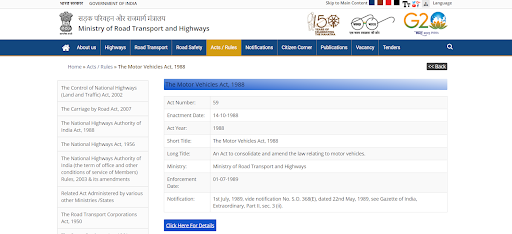
Insurance is the risk sharing between the policyholder and the company. An individual faces various risks, whether about his health or his property. Insurance reduces the risk of the financial burden the individual might face in the situation of some mishappening.
What is meant by insurance in simple words?
Insurance in simple words, is a pact between an insurance company and an individual or entity (the policyholder) in exchange for small fees (premiums). In turn, the insurance company safeguards the policyholder against financial loss, damage, or injury under certain circumstances. Under the insurance policy market, the insurance company is known as an insurer, and the individual or entity is known as an insured.

What are Some Important Terms Related to Insurance?
There are some important insurance terms that people find a bit confusing:-
- Premiums:-
Premiums are the small payments the policyholder gives the company after a regular interval for a specific time.
- Coverage:-
Coverage is the value the company ensures for the policyholder under specific events or circumstances.
- Deductibles:-
Coverages usually cover only a certain percentage of the loss. The amount that the policyholder has to pay is known as the deductibles. The company and the policyholder must have a shared financial responsibility towards the financial loss.
- Beneficiary
Beneficiaries are the people the policyholder is entitled to receive insurance coverage upon death. These are usually family members or some close relatives.
What are the Benefits of Insurance Policies?
You might have wondered: What are the advantages of having insurance? Well, there are many benefits of insurance, such as:
- Financial Management
Insurance is like financial safety gear that protects us from potential or unexpected dangers. The right type of insurance assists the policyholder and his family financially in case of any mishappening.
It ensures the impact of any misfortune event does not lead to any financial crisis for the policyholder.
- Sense of Security
Apart from the financial benefits, insurance gives peace of mind to the policyholder that even in case of a devastating event, his belongings are secured.
It also relieves the solo-earning member of a family that even if he isn’t there one day, his family won’t face any financial problems. People can live more freely, knowing they are protected against the unexpected.
- Risk Management
Insurance plays a vital role in managing and minimizing risks. Policyholders can wisely manage their risks by sharing the financial burden of any event with the insurance company.
For example, business insurance relieves business owners by ensuring that their insurance company safeguards their projects in case of any natural calamity or mishap.
What are the Different Types of Insurance?
There are different types of insurance. Some of them, like vehicle insurance, are made compulsory by the government. In the corporate world, many companies provide their employees with benefits such as health insurance. Let's understand the different types of insurance.
Life Insurance
People take life insurance to protect their loved ones against the financial load that might occur upon their death. Life insurance policies provide a lump sum to the policyholder's family members (beneficiaries) upon the policyholder's death under certain circumstances.
Many families have only one earning member, and other members are either infants or dependent on the earning member. In such cases, taking insurance coverage for the earning member becomes essential so that the dependents have some financial support for some time in case of any mishap. Now, let us see the types of life insurance.
Life insurance is also of 2 types:-
Term Life Insurance
In this, the beneficiaries get the coverage only if the policyholder dies within a certain period, such as 10, 20, or 30 years. It is usually more affordable for people.
Benefits of Term Life Insurance
- It gives payouts in some cases of illness and a total payout in case of a terminal illness.
- Four payout options are available: lump sum, lump sum plus income, increasing income, and income.
Disadvantages of Term life insurance
- It has to be renewed at the end of each term.
- For the new terms, the premiums are higher.
- People don’t qualify if there is any health issue.
- It doesn’t accumulate any cash value.
Whole Life Insurance
Whole life insurance provides financial coverage for the policyholder's entire life, which means the beneficiaries would receive the coverage amount irrespective of the policyholder's age at the time of his death. Whole life insurance is more costlier than term life insurance.
Benefits of Whole Life Insurance:
- It gives a rate of return on the cash value.
- Premiums are constant throughout the time.
- It provides a guaranteed death benefit amount.
Disadvantages of Whole Life Insurance:
- It’s costlier than the term life insurance.
- Cash values grow slowly.
- Options are limited to adjust the death benefit.
Health Insurance
92% of people in the United States of America pay their hospital bills through their health insurance coverage, whereas in India, only 8% pay their hospital bills through health insurance. Health insurance safeguards the policyholder against the financial burden related to medical expenses.
Health insurance policies also provide a variety of facilities, such as routine check-ups, surgeries, medicine bills, and hospital stays. Many companies offer health insurance for employees.
There are many types of health insurance:-
- Individual Health Insurance:
It provides coverage against medical bills for a single person.
- Family Health Insurance:
It extends coverage for the policyholder's family members, including his spouse and the kids.
- Group Health Insurance:
The companies provide it for many employees and sometimes also for their families.
Auto Insurance
The Motor Vehicles Act of 1988 made it compulsory for every vehicle owner to have at least third-party insurance for their vehicle. Anyone caught driving a car without auto insurance can be fined heavily.
Auto insurance provides coverage against the risks such as accidents, theft, and damage. It covers the policyholder's vehicle and the potential liabilities arising from accidents.

Auto insurance provides coverage for:-
- Property
Coverage for your vehicle's damage, theft, vandalism, or natural disasters.
- Liability
It covers the cost of bodily injuries and property damage caused to others by the policyholder.
- Medical
It covers the medical bills for the injuries caused by the accidents.
Home Insurance
Home Insurance is a kind of property insurance for the policyholder’s house or belongings against damage from natural disasters and man-made perils. It also provides coverage in case someone is injured on the property.
Lenders and mortgage companies generally demand proof of home insurance that ensures coverage for a property's whole or fair value. Some basic perils such as Fire, Lightning, Windstorm or hail, Explosion, Smoke, Vandalism, Aircraft or vehicle collision, Riot, or civil commotion are covered by home insurance.
There are three coverage in home insurance options:-
- Homeowners Insurance:-
It provides coverage for the house's structure and the owner's belongings.
- Renters Insurance:-
It provides liability coverage and coverage for the personal belongings of renters.
- Condominium Insurance:-
It is for the condo owner and covers their cell's interior and personal property.
Advantages of Home Insurance Policies:
- It provides the replacement of stolen items after a burglary.
- It gives a rebuild cost after a fire or flood.
Some of the other most popular insurance types are:
- Endowment plans
- Unit-linked insurance plan
- Travel Insurance
- Retirement plans
- Child insurance plans
- Moneyback policy
- Term insurance
- Fire insurance
- OPD insurance
- Senior citizen health insurance
- Illness insurance
- Commercial Insurance
This article explains insurance in simple words. These features of Insurance mentioned above give both financial backing and risk-effective management. So, it would be wise to have all your aspects covered by insurance. Before buying any insurance, comparing policies’ premiums, coverage, and deductibles is necessary.
Some of the best insurance companies in the market are LIC, HDFC Life Insurance, SBI Life Insurance, ICICI Prudential Life Insurance, etc. So, research properly and consult with your financial advisor before buying an insurance policy.
Frequently Asked Questions (FAQs)


